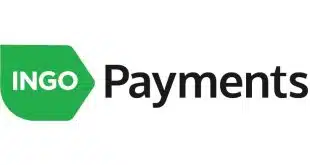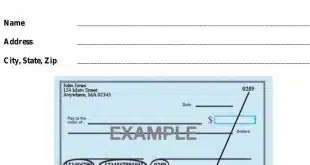In relaunching a debit rewards card for the QuikTrip Corp. convenience-store chain this week with a new issuer and new payment card network, specialty debit processor Tempo Payments Inc. plugged Discover Financial Services into the decoupled-debit market. And after concentrating on non-profits for the past year, Tempo says more Discover-branded deals with for-profit retailers are pending.
San Mateo, Calif.-based Tempo currently processes for about 10 debit card portfolios, most of which are MasterCard programs for non-profits. But the company expects to announce four or five more Discover deals with other retailers before year’s end, according to chief executive Mike Grossman. “What’s new is we’re working with Discover and we’re focusing increasingly with for-profit companies,” Grossman tells Digital Transactions News. Grossman wouldn’t identify the prospective new partners, but says they’re merchants that consumers tend to visit frequently.
Last year, Tempo unveiled a new software-as-a-service platform to make it easier for merchants and non-profit affinity groups to design their own debit card programs, and announced that Brookings, S.D.-based First Bank & Trust would issue cards for new Tempo programs. Tempo’s long-time partner bank was HSBC (Digital Transactions News, Oct. 19, 2009). QuikTrip’s card was an HSBC-issued MasterCard whose transactions Tempo processed. That card will be discontinued Aug. 31 and replaced by the Discover card from First Bank, with Tempo as program manager and processor.
Like the old one, QuikTrip’s new card gives holders a price break on gas purchases at the 557-store chain—5 cents per gallon for the first 90 days after activation and 2 cents thereafter. Customers activating their cards before Nov. 30 get a dime off per gallon for the first 90 days, then 2 cents. Unlike the old card that let customers accumulate rewards points on non-QuikTrip purchases, the new one offers cash back for purchases outside of QuikTrip, whose stores are in nine states. The money, determined on a spending-based formula, is sent to the cardholder’s registered demand-deposit account via the automated clearing house network. The cards have both signature and PIN capability, with PIN authorizations going over the Discover-owned Pulse EFT network.
A spokesperson for Tulsa, Okla.-based QuikTrip says the old card helped enhance customer loyalty, but expects the new one to do even better for customers and QuikTrip’s bottom line. “We just think with Discover and the new bank, we have greater opportunity, much greater opportunity,” he tells Digital Transactions News. “We’re convinced the cost will be better for QuikTrip.” The spokesperson would not disclose card or transaction numbers. A Discover spokesperson confirmed that QuikTrip’s is the network’s first card with Tempo but otherwise would not comment.
Meanwhile, HSBC seems to be stepping back from its partnership with Tempo although neither it nor Tempo has said the bank has made a formal exit. A bank spokesperson did not respond to a Digital Transactions News inquiry.
For a time, HSBC was one of the few banks to embrace decoupled debit, in which a financial institution that does not hold the customer’s checking account gives the customer a debit card, which draws funds from that account via the ACH. Credit card giant Capital One Financial Corp. was the most prominent name in decoupled debit for a time while it tested the concept, but dropped it (Digital Transactions News, March 8, 2008).
Grossman says HSBC, and other banks, were more adventuresome in trying new concepts such as decoupled debit before the financial meltdown hit about three years ago. “A lot of innovations halted in the banking” industry, he says. “I think they [HSBC] regarded it as a higher priority before the financial crisis than after the financial crisis.”
The crisis is one reason why Tempo is increasing its role to being program manager in addition to the processor, Grossman says. First Bank is actively involved in the new programs, he says, but in its new role Tempo does some of the things HSBC did, such as finding partner merchants or non-profits. Tempo also has added duties in such areas as authorization decisions and vendor fulfillment. “It’s a more vertically integrated model, where we’ve taken on more of the responsibility,” Grossman says.
One rap against decoupled debit has been that the card issuer does not have real-time data about funds available in the customer’s account at the time of authorization. Grossman says that can be offset by strong account underwriting and account-activation management, along with continual transaction monitoring. “We’ve gotten increasingly confident that that risk can be effectively managed,” he says, adding that, “on a net basis, we’ve not lost money.”







